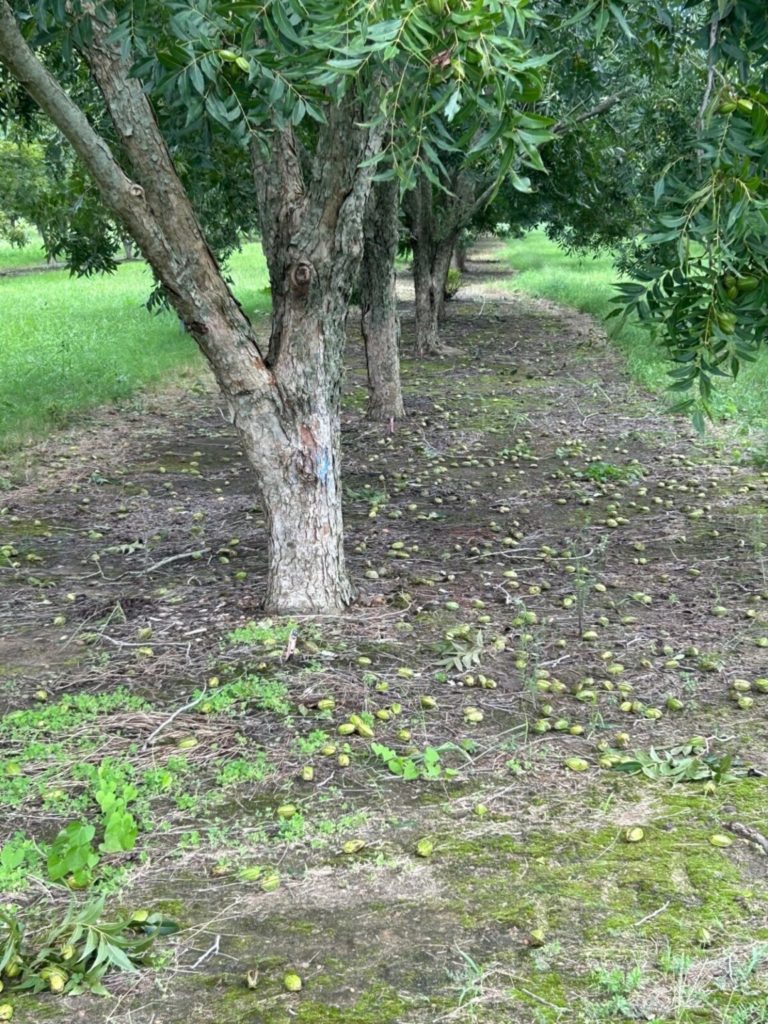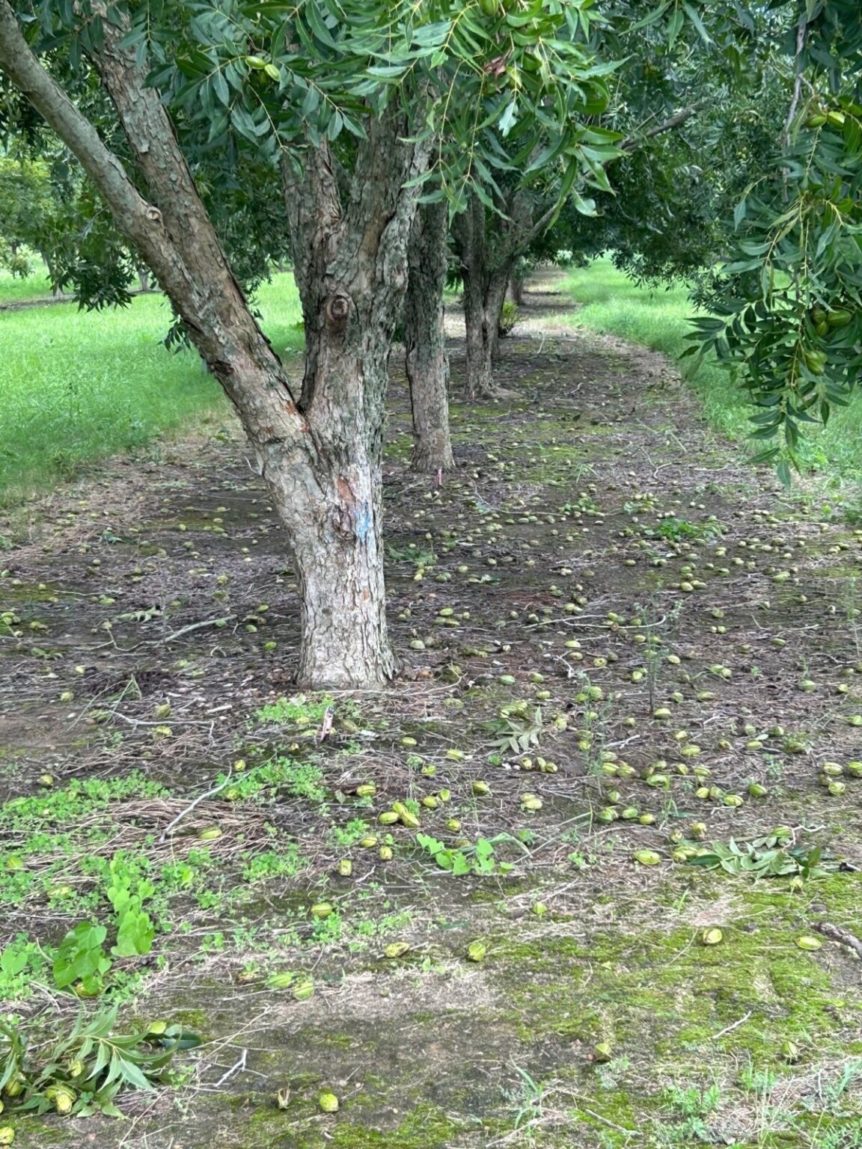By Clint Thompson
Hurricane Debby’s impact on Georgia’s pecan crop was not as severe as Idalia was the prior year. But it still affected trees with its high wind speeds and excessive rainfall, says Lenny Wells, University of Georgia (UGA) Extension pecan specialist.

“That southern tier, starting around Lowndes County, Brooks, in there was hit pretty bad. Some of the more serious wind damage we saw was in those areas. I talked to a few growers in those areas, larger growers, that lost about 500 trees,” Wells said. “On a percentage basis of what those growers have it was relatively minimal compared to previous storms.
“Most of those areas that did have some wind damage, even extended further north up into Irwin County and places like that, we’ve seen nuts blown out of the trees. Most of the numbers I’m hearing on that are 10% to 15%. Pawnee probably had a little more, about 20%. That’s just because they are being the first ones that we harvest. It was more mature and further along. The nuts were larger and heavier and had that weight to them, so the wind could more easily blow them out of there.”
Excessive Rains

The damage was more water related as the storm moved into Southeast Georgia. Excessive rains flooded orchards.
“As you get over into further east into Waycross and Baxley, Blackshear and on up into Reidsville, it seems to be mostly water, just from all of the rainfall. Some of those areas had anywhere from 8 to 12 inches and that’s on top a lot of rain the previous week,” Wells said. “A lot of those were standing in water for a long time. Pecans can take that for a certain length of time, but this is also a very sensitive time period in the development of the crop. We’re about to move into kernel filling. The nuts have sized. The shells are hardening but also at this time the trees are determining what kind of crop they’re going to make the following year. We normally want to keep them as stress free as possible during August.
“I don’t think we’ll have a lot of problems from that, hopefully not.”










